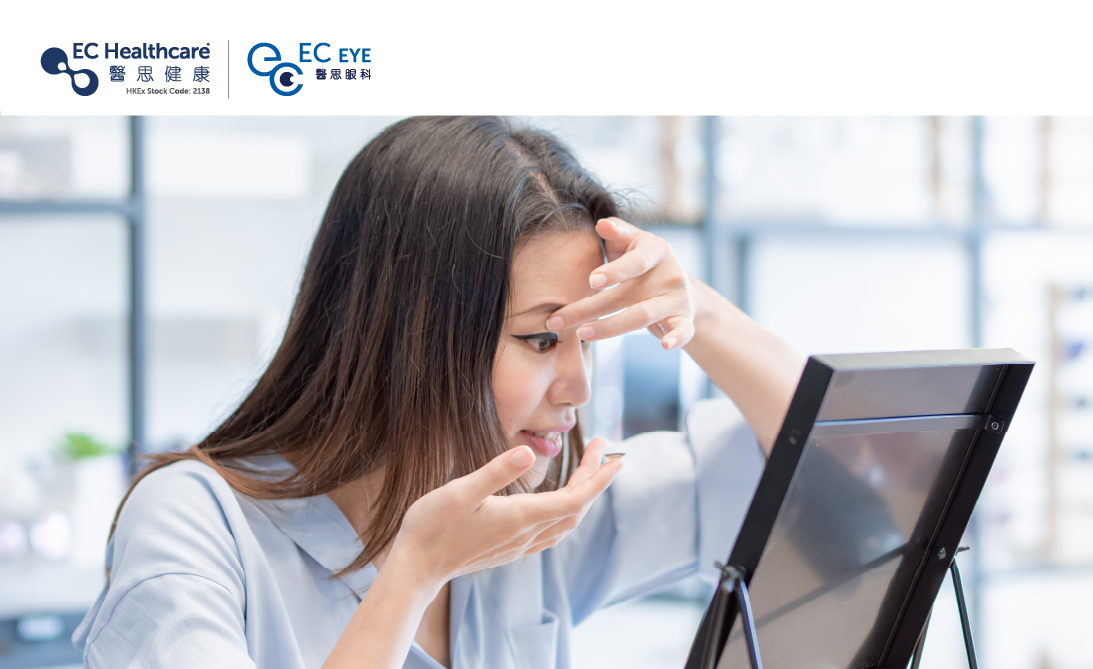Does Wearing Contact Lenses for 10 Years Cause Side Effects?


Wearing contact lenses can be flattering and convenient when doing sports, but it also has some limitations and side effects. Let's learn more about contact lenses and explore how to protect eye health.

Expiration dates of contact lenses
Different types of contact lenses have different expiration dates. Generally, hard contact lenses can be used for several years, while soft contact lenses need to be changed more frequently. However, some people suggest that wearing contact lenses for more than 10 years may be harmful to the eyes.
In fact, how long you can wear contact lenses depends on your physical condition and hygiene habits. Some people can wear them from a young age to adulthood, while others have to stop wearing them due to eye health issues. Even if you have been wearing contact lenses for 10 years, as long as there are no problems with dry eyes, inflammation, or corneal neovascularization, you can stay relaxed and continue to wear them.
Side effects of wearing contact lenses
Although wearing contact lenses is a safe way to correct vision, there are also some side effects of using them, which include:
Corneal diseases
Contact lenses form a thin film on the surface of the cornea, which blocks the cornea’s contact with air and its way to obtain oxygen and nutrients. This can lead to a series of diseases, including corneal ulcers, keratitis, keratopathy, and more. If these conditions are not treated in time, they may lead to blindness.
Eye infections
Contact lenses should be cleaned and changed regularly, otherwise, bacteria and viruses may grow on the surface, leading to eye infections. Symptoms include red and swollen eyes, increased eye discharge, itchy eyes, eye pain and blurry vision. If not treated promptly, it could lead to corneal diseases and blindness.
Dye eyes
Contact lenses reduce moisture on the eye surface, leading to dry eyes. Symptoms include dry and gritty eyes, eye pain, redness and swelling, blurry vision, eye fatigue, etc. People who wear contact lenses for a long time are more susceptible to dry eyes as the lenses will obstruct the natural flow of tears and dry their eyes.
Worsened eyesight
Wearing contact lenses for a long time can affect eye health and lead to worsened eyesight. Contact lenses may exert pressure on the eyes and change their shape, leading to vision problems such as myopia. In addition, relying too much on contact lenses may also make the eyes lazy, leading to worsened eyesight.
Other side effects
Long-term use of contact lenses may also cause other side effects. For example, the lenses can alter the eye surface and make it more sensitive and prone to injuries. Plus, wearing contact lenses can also cause headaches, eye pain, eye fatigue and other kinds of discomfort.
How to avoid side effects caused by wearing contact lenses
Receive regular eye check-ups
It is important to receive regular eye check-ups, especially for those who often wear contact lenses for long periods. Eye doctors will assess the health status of your eyes to evaluate the impacts of contact lenses on your eyes and detect and treat any underlying health issues timely.
Wear contact lenses in the correct way
It is important to use contact lenses in the right way, including cleaning, disinfecting and changing the lenses. Plus, you should never wear contact lenses when sleeping, wear them too much or use expired lenses.
Rest your eyes regularly
People who wear contact lenses for a long time should take regular breaks to give their eyes enough time to rest and recover. It is recommended to take off the contact lenses every day and let the eyes take a break for a few hours. You can also stay away from contact lenses during weekends and holidays.
Use eye drops
Using appropriate eye drops can alleviate discomfort such as dry eyes and eye infections. However, you should use eye drops in the right way as instructed by your doctor.
If you experience any problems or discomfort when wearing contact lenses, consult a professional doctor or ophthalmologist as soon as possible. They can provide you with the most suitable advice and treatment plan to protect your eye health.








